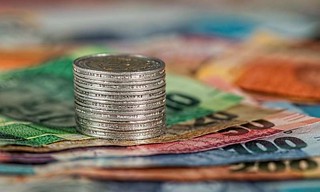
PREV ARTICLE
FULL ISSUE
PREV FULL ISSUE
HONG KONG STUDY EXAMINES BANKNOTE BACTERIAResearchers in Hong Kong have published a new study on the bacteria found on banknotes and its implications for the spread of antibiotic resistance. -Editor
Due to the global public health concern of antibiotic resistance, Dr Li and his team realized the importance of investigating how microbes are passed between humans and how antibiotic resistance can be spread around the world. To do this, bacteria were scraped from the surface of banknotes collected from hospitals and metro stations around Hong Kong in areas of varying population density and grown in the lab to determine the bacterial presence. Despite doubt as to whether microbes can even survive on banknotes, the researchers found that the banknotes offer an environment that can, indeed, accommodate living bacteria. Over one third of the bacteria identified on the banknotes consisted of potentially pathogenic species. Widely recognized pathogens like Escherichia coli and Vibrio cholera were among these species, of which some strains can lead to death in infected people. Comparing the microbes found on banknotes with peoples' hands, metro station air, drinking water and marine sediment, Dr Li and his team found that the banknotes harbour a much higher diversity of bacteria than that of the environmental samples. When comparing the number of antibiotic-resistance genes between banknotes and the other environmental samples, Dr Li and his team found that the banknotes have a significantly higher abundance than the other samples. Of particular interest were clinically important antibiotic-resistance genes (those that are significant in the medical world) which were also higher in the banknotes. I am shocked - SHOCKED to learn there are microbes on my money. Actually, I've lost count of how many studies I've seen about all the nasty things carried on banknotes. I get it - it's yucky. I understand the desirability of independently repeating experiments, but how many times do we have to measure this stuff to get the same result? Who is paying for all these duplicate studies around the world? OK, I feel better now that I got that off my chest. I do understand these researchers are looking at different aspects of the problem. But after seeing study after study after study the sense of deja vu is overpowering. -Editor To read the complete article, see:
 Wayne Homren, Editor The Numismatic Bibliomania Society is a non-profit organization promoting numismatic literature. See our web site at coinbooks.org. To submit items for publication in The E-Sylum, write to the Editor at this address: whomren@gmail.com To subscribe go to: https://my.binhost.com/lists/listinfo/esylum All Rights Reserved. NBS Home Page Contact the NBS webmaster 
|
